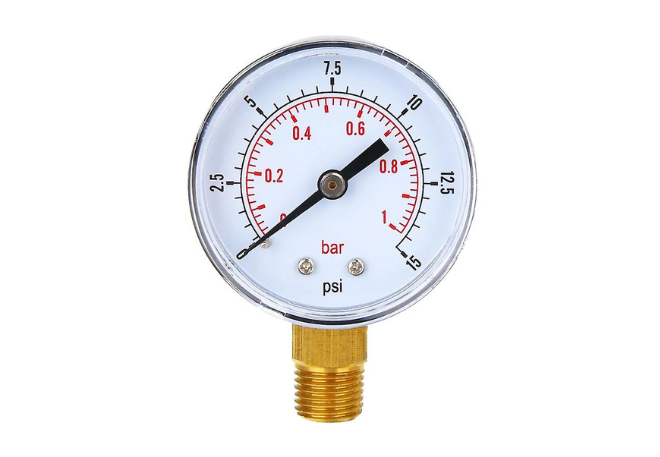Why Do Washers Matter in Mechanical Fastening? An In-Depth Guide
Understanding the Role of Washers in Fastening Systems
In engineering, construction, and manufacturing, every component—no matter how small—serves a purpose. Washers, though often overlooked, are indispensable elements in any bolted or screwed joint. Their primary function is to enhance the performance of fasteners while protecting surfaces and maintaining long-term structural integrity.
Washers are used in numerous machines, assemblies, and devices across various industries, ranging from automotive to electronics. Their adaptability in size, material, and design makes them suitable for both everyday tasks and complex industrial operations. In short, washers add value by improving safety, durability, and precision in fastening systems.
What Exactly Is a Washer and How Is It Used?
A washer is a thin disc—typically round—with a hole in the center that fits over a threaded fastener like a screw or bolt. It is installed between the fastener and the surface being fastened. This simple component brings several performance-enhancing benefits:
- Distributes force over a larger surface area
- Protects soft or delicate surfaces from damage
- Acts as a spacer to provide accurate positioning
- Reduces the likelihood of loosening due to vibration or thermal expansion
- Enhances friction and prevents rotation in locking applications
Washers may look simple, but their impact is critical in ensuring secure, stable, and long-lasting connections.
What Types of Washers Are Available and What Do They Do?
Washers come in many forms, each tailored for specific mechanical or structural functions. Knowing the type of washer that suits your application is essential for optimal performance.
Flat Washers
- Serve as the most basic type of washer
- Spread load evenly and prevent indentation on the surface
- Useful for a wide range of general-purpose fastening tasks
Lock Washers
- Designed to resist loosening under vibration or torque
- Create frictional resistance between surfaces
- Available in internal/external tooth, split ring, and star configurations
Spring Washers
- Deliver elastic properties for maintaining tension
- Absorb shock and vibration
- Include wave washers, conical (Belleville), and crescent types
Fender Washers
- Feature a large outer diameter compared to the inner hole
- Provide extra surface coverage for soft or oversized holes
- Frequently used in automotive and sheet metal work
Shoulder Washers
- Offer insulation and spacing
- Often made from plastic or rubber for electrical isolation
- Commonly used in electronics and sensitive assemblies
What Are the Applications of Washers?
Washers are found in nearly every type of mechanical structure or device. Their versatility allows them to serve across industries, from simple DIY setups to high-load industrial frameworks.
- Aerospace: Maintain joint integrity under high-pressure and high-speed conditions
- Automotive: Reduce vibration in engines, chassis, and suspension components
- Electronics: Insulate components and mount circuit boards securely
- Construction: Reinforce bolts in structural beams, frames, and supports
- Renewable Energy: Resist corrosion and provide long-term fastening in outdoor conditions
- Household Appliances: Minimise wear, dampen vibration, and protect enclosures
What Factors Should Be Considered When Selecting Washers?
Choosing the right washer is not just about matching size. A proper selection requires understanding mechanical demands, material compatibility, and environmental exposure.
- Load Type: For heavy-duty applications, use spring or conical washers to manage high stress
- Material Strength: Use stronger materials (e.g., hardened steel) for high-torque joints
- Corrosion Resistance: Stainless steel or coated washers work best in corrosive or humid environments
- Electrical Insulation: Choose plastic or nylon washers in electronic or electric systems
- Temperature Stability: Use heat-resistant materials in high-temperature environments
- Dimensional Tolerance: Match washer dimensions to bolt/nut sizes and surface requirements
Incorrect washer selection can lead to premature wear, structural failure, or safety risks.
What Materials Are Commonly Used in Washers?
Washers are made from a wide variety of materials to meet performance and environmental needs.
- Steel (Plain/Coated): Offers strength for structural and industrial tasks
- Stainless Steel: Provides corrosion resistance in marine or outdoor use
- Brass: Suitable for electrical conductivity and decorative applications
- Plastic/Nylon: Lightweight and non-conductive, ideal for electronics
- Copper: Excellent for thermal and electrical applications
- Rubber or Neoprene: Absorbs vibration and seals joints from moisture or dust
Choosing the material wisely ensures both mechanical reliability and environmental suitability.
How Do Washers Improve Joint Reliability?
Fasteners alone may not provide the durability or security needed in many applications. Washers enhance joint integrity through:
- Improved Torque Control: They offer consistent friction between components, allowing precise torque application
- Surface Preservation: Prevents scoring, bending, or damage to the surfaces being clamped
- Vibration Damping: Reduces the risk of joint loosening in dynamic environments
- Alignment Assistance: Helps in positioning fasteners accurately, especially in assemblies with multiple bolts
By integrating washers into a fastening system, you elevate its strength, stability, and resistance to wear.
Are Speciality Washers Also Available?
Special washers are engineered for unique or demanding conditions, often combining multiple performance features to meet specific needs.
- Sealing Washers: Incorporate a bonded rubber ring to create fluid-tight seals
- Countersunk Washers: Provide a flush finish in applications with angled or recessed screw heads
- Torque Limiting Washers: Control preload and avoid over-tightening in precision applications
- Dome Washers: Used for aesthetic purposes or to prevent tampering
These specialised options expand the scope of washer applications across sectors like defence, robotics, and medical devices.
Final Thoughts: Why Washers Shouldn’t Be Ignored
Washers may appear insignificant at first glance, but their role in fastening technology is undeniable. They enhance the reliability, efficiency, and safety of mechanical joints. Whether you're working on a minor repair job or designing an industrial system, washers contribute to optimal joint performance, lower maintenance, and longer service life.
The right washer selection adds value to your assembly by balancing mechanical load, preventing damage, and supporting long-term durability. In today's world of high-performance engineering, ignoring washers is not an option; embracing them is a smart move toward achieving structural excellence.
.jpg)



Comments
Post a Comment